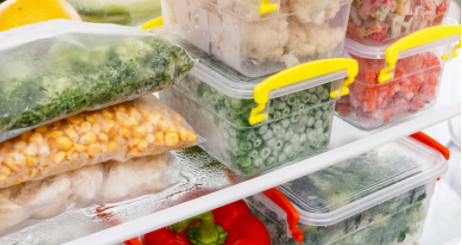
We can’t avoid the plastic in this world – I’ve tried. It is everywhere, from food storage, food wraps, disposable cups and lids, takeaway restaurant containers, store-bought yogurt cups, electric kettles, coffee & espresso makers.
It is impossible in today’s society to go plastic-less. So we have to create an awareness of how much plastic is excessive, and how to reduce its use when combined with foods and heat. Why do we need to reduce this usage? Because certain chemicals used to produce the plastic, like BPA and many others, can leach out of the plastic and into the consumables. Then upon consumption they can lead to health problems like metabolic disorders (think obesity) and reduced fertility. Should be really be concerned about this?
Well, according to Harvard Medical School Women’s Health Watch, plastic is not just one particular thing – but a spectrum of many different components. Which means that your plastic container can have a variety of different chemicals and proportions of them. Generally over the long term of usage, the effects of these chemicals add up and can lead to a variety of health issues. So the more we expose ourselves to it, the longer we expose ourselves to it, the more we combine it with heat and consumables, the higher our risks to adverse health issues.
Because I’m a health coach and have access to various toxin testing, I’ve learned how high my BPA content is – and I strive to eat clean and safely. So I’m thinking if I actively work hard to avoid the plastics, and my BPA content is so high… how high is it for someone who doesn’t yet have the awareness?
Aside from BPA – Bisphenol A, Phthalates are harmful for the male reproductive system. In addition to phthalates, there are a number of chemicals shown to leach out and create estrogenic activity. This is not a great thing. So when a plastic is deemed by the FDA to be microwave safe, there could still be other toxins used in the manufacturing of that plastic that could still be leached. When there are other options, like ceramic-glass, which can be used equally well in microwaves, it just makes good sense to avoid putting the plastic in a delicate position of harming your health.
Fancy coffee houses will be brewing in stainless steel machinery, which is great – but if they pour into plastic/paper cups, then we’re back in the same ball game. It’s nice when you can take your stainless steel tumblers into these coffee shops.
Key Takeaways. Avoid putting plastics in the microwave! Skip packaging when possible. Reduce hot beverages when brewed in plastic components. Bring your own cups to coffee houses.


